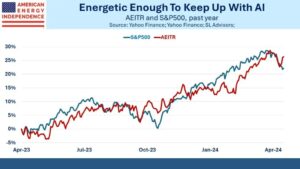By subSPAC
EXECUTIVE SUMMARY
- Fantasy Sportbook Operator DraftKings saw its shares drop by 28% at the close on Friday, recording the worst in its trading history even as its management and CEO remained upbeat about the company’s future.
- What was surprising about the steep decline was the fact that the company beat analyst expectations both on the revenue and EPS front in its most recent quarter while also raising its full-year guidance.
- The market remains skeptical about the company’s business model and its decision to prioritize growth over profitability, a stark comparison to its peers who have cut costs in recent months.
DETAIL
Happy Sunday, Friends!
Fantasy Sportbook Operator DraftKings saw its shares drop by 28% at the close on Friday, recording the worst in its trading history even as its management and CEO remained upbeat about the company’s future. What was surprising about the steep decline was the fact that the company beat analyst expectations both on the revenue and EPS front in its most recent quarter while also raising its full-year guidance.
The market remains skeptical about the company’s business model and its decision to prioritize growth over profitability, a stark comparison to its peers who have cut costs in recent months. To its credit, DraftKings continues to benefit from the expanded legalization of gaming across the US and the lower customer acquisition costs in recent months due to other companies pulling back on spending. Will DraftKings’ strategy of spending more to acquire customers from competing firms pay off, or is it a bad bet?
Chasing Growth
DraftKings stock is now down 85% from the highs seen in April 2021 as the company has continued to post huge losses as it looks to aggressively expand into new states, add customers and bolster revenues. The story has been all too familiar over the last eighteen months – DraftKings reports better-than-expected results, raises guidance but warns of higher losses, and the stock gets sold off. In the last three quarters, the stock has declined 9%, 11%, and 19%, respectively, after announcing earnings.
Profitability isn’t the only concern; recent quarters have shown that growth is stalling too, and DraftKings isn’t benefiting from the rapid legalization of online sports betting that previously took place. One instance of this is California, which had Proposition 27 – legalizing online sports betting across the state on the ballot for the midterm elections. But with proposition 27 now polling at just 30%, SportsBook operators have all but conceded on the fact that they can break into the roughly $3 billion market starting next year, despite collectively spending $400 million on captioning for it.
Even in the states where DraftKings is breaking territory, it’s seeing a slowdown in growth. The company will soon provide sports betting to 45% of the US population and parts of Canada, yet revenues will only have increased by 40% this year. With few markets expected to legalize sports betting or gaming next year, DraftKings could further see constrained opportunities for revenue expansion. Another factor that could impact the company’s prospects is its long-rumored partnership with ESPN.
The network has been in talks with DraftKings for a potential partnership since August 2021, valued at close to $3 billion, but several challenges have impeded the discussions. DraftKings has seen its valuation decline severely since the talks began, while its cash balance has been reduced in half, ruling out any potential upfront payment to ESPN itself. While the companies may come to an agreement through a revenue-sharing agreement, the delayed talks also impact revenue growth and the timeline for the company to turn profitable.
Q3: Disaster or Overreaction?
DraftKings saw the single biggest drop in its share price over its trading history after reporting its third-quarter results. To be clear, DraftKings’ third-quarter metrics weren’t a complete washout. The company beat street estimates by delivering revenues of $502 million (vs. consensus of $437 million) and Earnings Per Share loss of $1/per share compared to the street estimates of a loss of $1.04/share. Management at DraftKings was also upbeat about the upcoming quarter, slightly raising their revenue guidance for 2022 from $2.08 billion – $2.18 billion previously to $2.16 billion – $2.19 billion.
The company also narrowed its EBITDA loss forecast for the year to between $800 million and $780 million from the previous forecast of between $835 million and $765 million. Despite the earnings beat and the improved guidance, DraftKings stock plunged primarily due to two factors: Slower Customer Growth and a delay in attaining profitability.
DraftKings reported that the number of unique paying customers had increased to 1.6 million, up 22% from 1.3 million a year ago. However, this was far short of the 2 million that analysts had estimated and showed that customer growth was slowing down from the 30% in the second quarter and the 29% seen in the first quarter. CEO Jason Robins blamed the slowdown in customer growth due to a tough comparison as the NBA went into the third quarter in 2021, while it ended early this year.
While this may have attributed to the slowdown, there are other reasons, including increased competition and a slowdown in consumer spending, despite aggressive promotions by DraftKings. The aggressive marketing spending, coupled with the announcement of expanding into new states, suggests that the company is far from reaching profitability, despite many of its peers focusing on breaking even by cutting costs aggressively.
Path to Profitability
DraftKings said that it anticipated revenues to be between $2.8 billion and $3 billion but expected to post an EBITDA loss of between $575 million and $475 million. The company cited its expansion into new states, including Maryland, Ohio, Massachusetts, and Puerto Rico, all of which have recently authored online sports betting.
The company’s 2023 guidance, which is still focused on user and revenue growth, would have been rewarded by markets twelve months earlier, but investors are now more concerned about the company’s path to profitability than ever before. Competitors Caesars Entertainment and Penn Entertainment both posted positive earnings, and in the case of the former, its aggressive marketing spending and promo cuts led to profitability that was twelve months ahead of schedule.
At its current run rate, DraftKings has between 2-2.5 years of runway before needing to raise additional capital, and this isn’t even considering the ESPN licensing deal or any new partnerships. With the recent drop in its stock, DraftKings is now trading at an Enterprise Value of $4.89 billion, implying a forward EV/Sales of 2.2x, a far cry from the 20-25x range it was trading at the back in April 2021.
Despite this valuation discount, there are several challenges, including increased competition, the slowdown in new revenue opportunities, and liquidity challenges that could arise from the company’s increased spending that investors will need to keep a note of.
Bottom Line
DraftKings has struggled in recent months due to the slowdown in new customer growth, macroeconomic headwinds leading to lower customer spending, and a longer-than-expected timeline to turn profitable. As things currently stand, DraftKings is a long way from being considered a frontrunner in the market. The company will need to streamline its operations, cut costs, and capture additional market share in order to justify its valuation over the coming quarters.
—
Originally Posted November 6, 2022 – King No More
Disclosure: Smartkarma
Smartkarma posts and insights are provided for informational purposes only and shall not be construed as or relied upon in any circumstances as professional, targeted financial or investment advice or be considered to form part of any offer for sale, subscription, solicitation or invitation to buy or subscribe for any securities or financial products. Views expressed in third-party articles are those of the authors and do not necessarily represent the views or opinion of Smartkarma.
Disclosure: Interactive Brokers
Information posted on IBKR Campus that is provided by third-parties does NOT constitute a recommendation that you should contract for the services of that third party. Third-party participants who contribute to IBKR Campus are independent of Interactive Brokers and Interactive Brokers does not make any representations or warranties concerning the services offered, their past or future performance, or the accuracy of the information provided by the third party. Past performance is no guarantee of future results.
This material is from Smartkarma and is being posted with its permission. The views expressed in this material are solely those of the author and/or Smartkarma and Interactive Brokers is not endorsing or recommending any investment or trading discussed in the material. This material is not and should not be construed as an offer to buy or sell any security. It should not be construed as research or investment advice or a recommendation to buy, sell or hold any security or commodity. This material does not and is not intended to take into account the particular financial conditions, investment objectives or requirements of individual customers. Before acting on this material, you should consider whether it is suitable for your particular circumstances and, as necessary, seek professional advice.










![[Gamma] Scalping Please [Gamma] Scalping Please](https://ibkrcampus.com/wp-content/smush-webp/2024/04/tir-featured-8-700x394.jpg.webp)
![[Gamma] Scalping Please [Gamma] Scalping Please](https://ibkrcampus.com/wp-content/uploads/2024/04/tir-featured-8-700x394.jpg)












